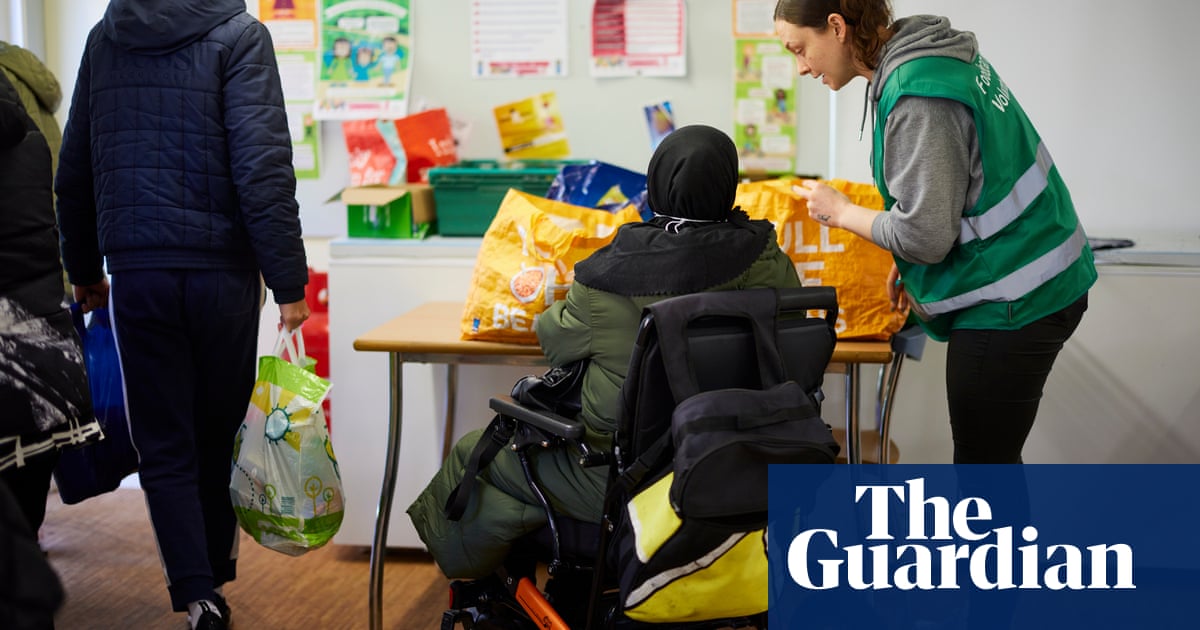
At least 10,000 more children have fallen into poverty since Keir Starmer took office, thanks to the two-child benefit cap, according to new analysis.
The policy, which was introduced by George Osborne when he was chancellor, means low-income parents are denied key benefits, including universal credit, for their third and any subsequent children born from April 2017.
The Labour government has so far resisted pressure to scrap the policy, with the chancellor, Rachel Reeves, reluctant to take on the “unfunded pledge” without citing where the £3bn annual cost would come from.
However, the data from the Child Poverty Action Group (CPAG) lays bare the significant impact of the cap, showing “10,000 children have been pulled into poverty by the two-child limit since the government took office” in early July.
The charity’s chief executive, Alison Garnham, said: “The clock is ticking while child poverty rises – and the two-child limit is the key driver of the increase. Scrapping it is the most cost-effective way to stop more kids being pulled into poverty on the government’s watch.
“We welcome the government’s child poverty taskforce but the damage grows every day – the policy must be abolished in the upcoming budget.”
John McDonnell, who was suspended from the Labour party for backing an SNP amendment that called for the cap to be scrapped, said: “Many of us are pleading with the government to act on this before any more children are forced into poverty by this iniquitous rule. No Labour government worthy of the name can stand by and witness children suffering and their lives blighted in this way.”
Rosie Duffield, who quit the Labour party last week, said she would have rebelled to vote for the SNP amendment to scrap the two-child benefit cap in July but had Covid. She said: “These new figures should shame every single member of parliament. We could and should do what all NGOs and charities have been asking us to do for the best part of a decade and scrap this heinous and punitive cap that traps children and families in poverty.”
The Joseph Rowntree Foundation, a social change organisation, said the CPAG figures “are a reminder that hardship isn’t on hold” and called for the government to set out a plan this autumn.
A leading rightwing thinktank, Onward, had called for an end to the two-child limit on benefits, noting the wider two-child limit and the higher earner threshold applying specifically to child benefit should be abandoned in order to support parents.
The Institute for Fiscal Studies said this would come at an initial cost of £1.7bn a year to the government, rising to £2.5bn a year.
The IFS said: “Among the options available to the government on benefits policy, removing the two-child limit would be the single most cost-effective policy at reducing the number of children classified as in poverty.”
But it warned that any gains from scrapping that policy would be partly or fully wiped out for 70,000 of the poorest households who would be subject to the household benefit cap.
The household benefit cap, introduced in 2013 under the Conservative and Liberal Democrat coalition government as a way of “restoring fairness to the welfare state” reduces the amount of benefits some households receive to ensure claimants do not receive more than the cap limit.
A government spokesperson said: “No child should be in poverty – that’s why our new cross-government taskforce is developing an ambitious strategy to reduce child poverty and give children the best start in life.
“Alongside this, we have extended the household support fund to support the most vulnerable with essentials this winter and have committed to reviewing universal credit while we deliver on our plan to tackle inequality and make work pay.”
The government’s child poverty taskforce, made up of ministers from across government, is expected to publish its strategy in spring 2025.












